Ready to take your writing seriously? Getting ready for NaNoWriMo and need some writing and productivity tips?
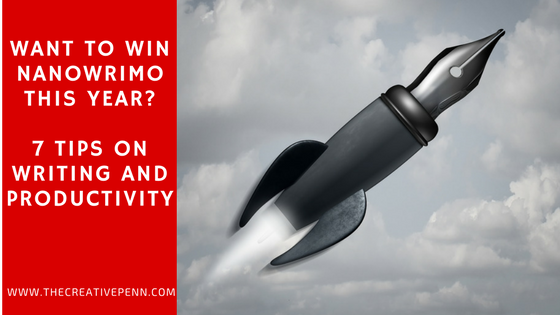
Those words became the kernel of Stone of Fire, my first novel, and that month of writing changed my life. Now I have 15 novels and if I can do it, you can too!
Here are some tips and useful books that might help along the way.
 (1) Schedule your writing time
(1) Schedule your writing time
“You need a schedule to help you manage your time, to acquire discipline, and to meet deadlines. Once you become adept at your business, you will know how many hours something will take.” Kristine Kathryn Rusch, Time Management
When people ask for tips on getting their book written, my number one tip is to schedule time for writing as you would schedule any other appointment.
Do you put your gym class into a calendar? Children's party? Doctor's appointment? How about your day job – does that have a clear start and finish time?
You need to take your writing time as seriously as any other appointment, so get out your calendar right now and put in the hours you need to get the writing done this month.
 (2) Organize your writing
(2) Organize your writing
“The program is so versatile, it can be customized to work almost any way the individual can think of … Sure, there are other novel organizing software programs out there, and most of them work pretty well, but none of them I've tried (and I've tried a lot of writing software) comes close to Scrivener in terms of robustness and versatility.” Michael J. Carlson, The Unofficial Scrivener Workbook
I wrote that first novel using MS Word and it was so difficult to keep track of the story. I've never written completely in order and it was hard to move everything around in one big file.
When I learned about Scrivener, I jumped straight in and have used it for every book since. I love being able to move things around, as well as keep my research in one place, color-code and label my chapters and add notes into the Inspector about conflict, cliffhangers and more.
(3) Structure your story so you can write faster
“The problem in pantsing is, unless you're really intuitive to the direction the story is going and needs to go, the story can wander all over … This can be a problem when you get to the middle or the end of the book and you find that the book is sagging in the middle or has no clear resolution or satisfaction in plot or character.” C. Michelle Jeffries, Story Structure and Master Chapter Outline Workbook
One of my lessons learned during that first NaNoWriMo was discovering that stories had a structure, and if you understood structure, you could plot a book and write it faster. Learning about ‘scenes' was revolutionary for me and when that clicked, I was able to structure and finish the story.
 (4) Write compelling characters
(4) Write compelling characters
“Readers of fiction want one thing – a powerful emotional experience. They want and expect to be someone else temporarily. They want to feel something for the characters in whom they are investing their time and attention.” Michael J. Carlson, Hurting your Characters
Readers remember the characters they love.
They might not remember the details of plot or setting, but if a character resonates, a reader will devour everything they are in. This is why so many authors write long-running series, and why TV has some shows that go on for many years.
There are many ways to make your characters compelling – from using bonds of love with family, friends or animals, to sending them on an impossible journey, through to giving them a fatal flaw in personality, or even a physical wound. You need to dig deep into yourself and your own experience to bring your characters alive – or you can learn from other writers and do research. That's the fun part for me!
(5) Look after your physical and mental health while you're writing
“Think about running. You don't start off running 5K the first time you get off your couch … Writing is the same way. You must train for it.” Leah Cutter, The Healthy Professional Writer
Writing is surprisingly tiring – both physically and mentally. Even if you're used to working in front of a computer for hours, pulling ideas from your brain and making decisions for your characters can be challenging.
Timed writing sprints are a great way to get your words done. Schedule your time slot as above, then set a timer for 15-20 minutes. Write for that time, and then take a physical break.
That means you need to get up, go for a walk, stretch, do some squats or press-ups or whatever floats your boat. But look away from the computer and move your body.
Yes, you can write your book while in pain … but you don't have to.
 (6) Consider co-writing and collaboration
(6) Consider co-writing and collaboration
“It can be an amazing learning experience to understand the inner workings of another writer and find techniques that will benefit your own work.” Kevin J. Anderson, Writing as a Team Sport
I used to be super-protective of my writing, afraid to let anyone else see my first drafts. I thought that co-writing would somehow dilute my creative process and after all, as an introvert with my own business, I don't play well with others!
But then in 2015, I co-wrote Risen Gods with J. Thorn, and we did Sacrifice together with two other authors in early 2017, plus I have 3 other co-written books under my (secret) sweet romance pen-name, plus The Healthy Writer coming out for Jan 2018, co-written with a medical doctor. I am definitely hooked on co-writing and it will be an increasing part of my business over time.
(7) Value what you write
“When you start thinking of your writing as a business and a retail store, it really is amazing how clear some basics about writing become.” Dean Wesley Smith, The Magic Bakery
You might feel that what you write during NaNoWriMo (or any other time) is a pile of crap.
Don't worry, this is normal and almost all creatives suffer from self-doubt and imposter syndrome. (See The Successful Author Mindset for more on this topic.)
I'm plagued by it as much as any other writer and from all accounts, it doesn't stop even when you're super successful.
But if you can work through those mindset issues, produce a quality product, value your work, and repeat the process, then you can make a living with your writing – if you want to.
Please do leave any questions you might have about writing, productivity or NaNoWriMo in the comments below. Happy writing!
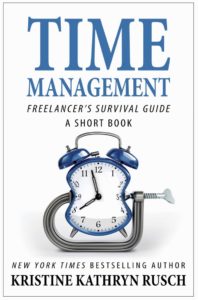
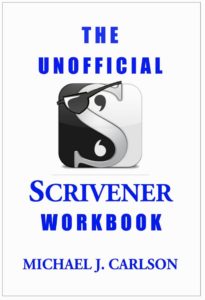 (2) Organize your writing
(2) Organize your writing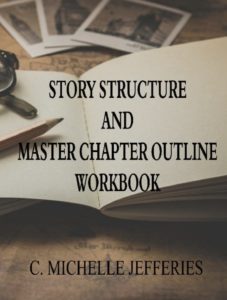
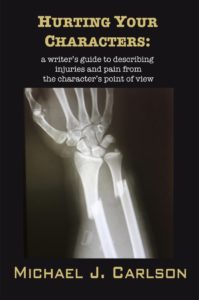
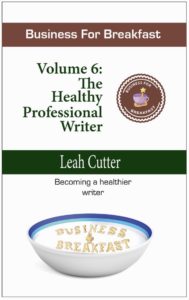
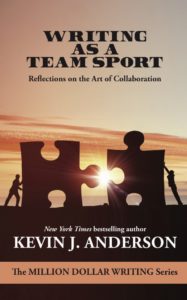
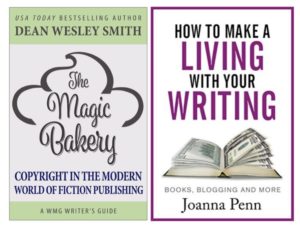


I’m still in so much doubt as to whether to join NaNoWriMo this year. It’s been a really stressful year and 50,000 words, wew, that is daunting. Writing, like you mention as well, is tiring, but writing in sprints and actually taking a break might be a way for me. I’ve got a few weeks left to decide.
Thanks for the awesome post. Already getting excited about doing NaNoWriMo again this year!
So grateful for all you do for new writers. Thank you so much for taking time out of your busy schedule to podcast and teach and be our cheerleader. I actually feel like that I can write and publish a book and that’s been a long time coming. I have lots to learn but I think that bundle is a wonderful start.
Great post! I bought the bundle as soon as I heard about it on your podcast 🙈
I’ll be participating in NaNoWriMo to write my prequel novella that will become a Reader Magnet.
I especially like the part about scheduling writing time and cannot wait to read the „Time Management“ book. Thanks a lot for the great summary!
SleuthFest 2018
Dear Joanna Penn,
Would you include information about SleuthFest for your readers on your blog?
SleuthFest is a writers’ conference sponsored annually by the Florida Chapter of Mystery Writers of America. 2018 will be its 24nd year.
2018’s Keynote is Andrew Gross, the Forensic Guest of Honor is Katherine Ramsland, Ph.D. The Guest Authors are James R. Benn, Hallie Ephron, Kristy Montee (PJ Parrish), and Hank Phillippi Ryan.
All the Guests of Honor will be giving intensive workshops and participating in panels and other sessions.
While SleuthFest’s emphasis is on writing mystery/thrillers/suspense, over the years, it has become one of the best conferences for writers of all genres. There are four tracks of workshops, presentations, and panels in writing craft, business & marketing, and forensics.
Other features are the annual Freddie Awards for Writing. There are cocktail parties, a raffle, informal mingling and pitch sessions with top agents and editors.
For many writers, SleuthFest is where they met their agent or editor. Unique to SleuthFest is the Strategy Sessions with professionals. Attendees can arrange for one-on-one time to ask about issues pertaining to their manuscript.
SleuthFest 2018 will take place March 1-4 at the Embassy Suites by Hilton in Boca Raton, Florida. More information can be found on the website at http://www.sleuthfest.com, or contact Victoria Landis & Michael Joy, our Co-Chairs, at Sleuthfestinfo@gmail.com.
Thank you for your time and consideration.
Sincerely,
Philip Butera
SleuthFest Publicity Co-Ordinator
561 445 7784
Thanks, Joanna – a fabulous post and inspiration. And the bundle is such awesome value and look forward to reading. I’m finally doing Nano this year and have written every day and 22,937 words so far so feeling really chuffed! And I have 37K words down on my draft book in total! Thanks for all the info and encouragement over the years to help me get to this point.
I highly recommend the book for writers both Plotter and Pantser “Pen the Sword: the universal plot skeleton of every story ever told” by Adron J. Smitley. Walks your through the entire writing process step by easy step, and it’s FREE with kindle unlimited!
Writers read, write and write again. Writers support each other too. Supporting each other makes the world a great place. A writer reaches thousands of readers. It is good to support your fellow writer. Thank you